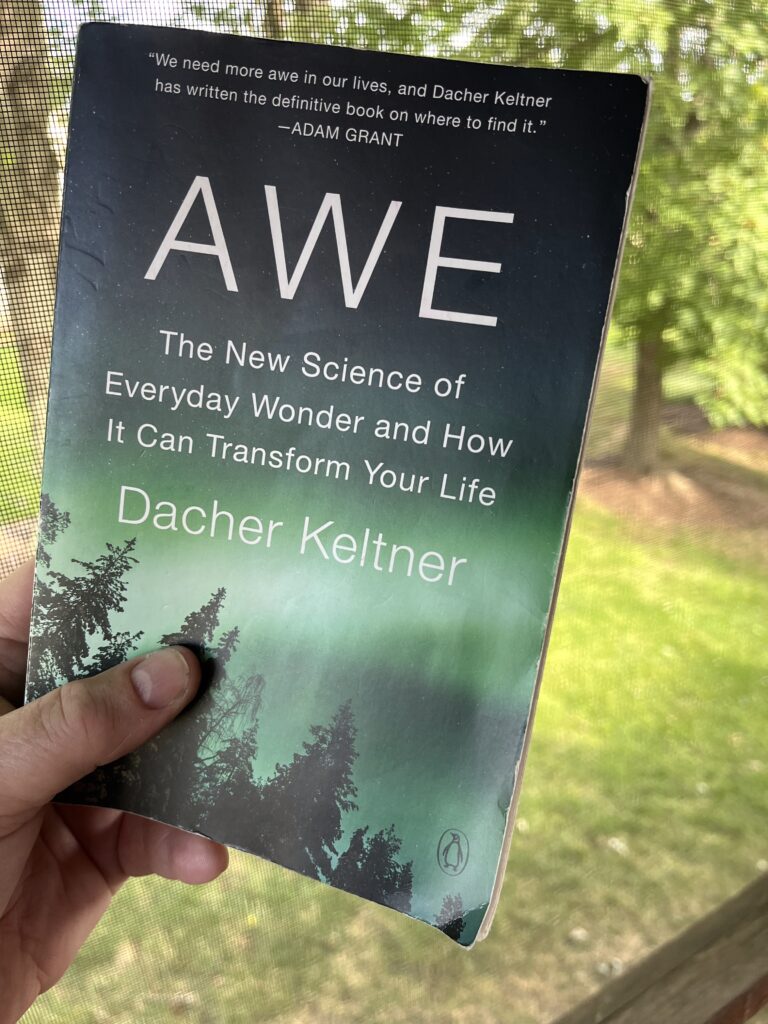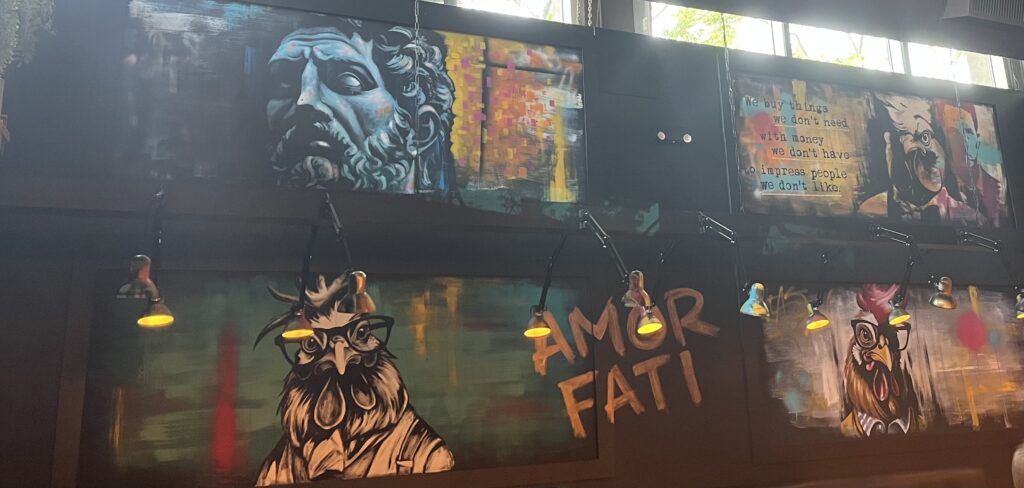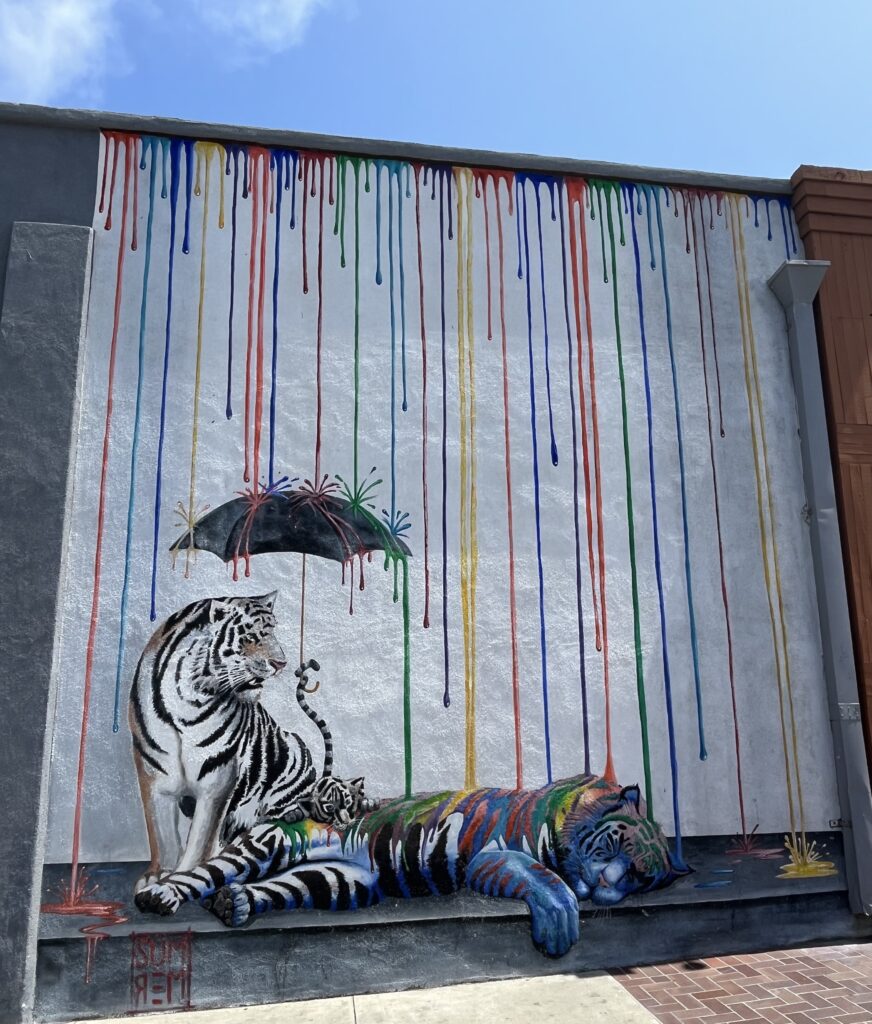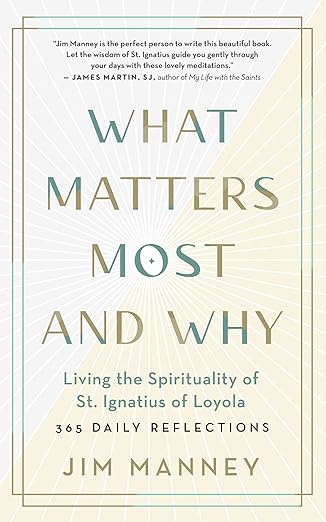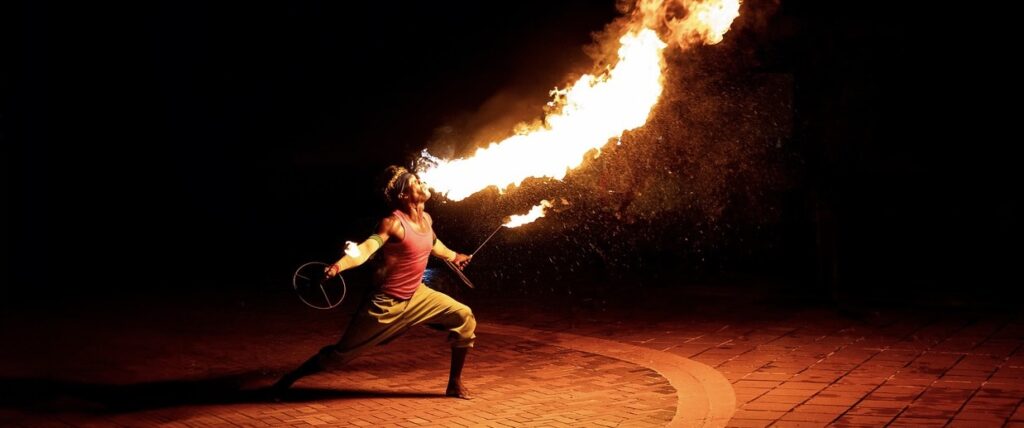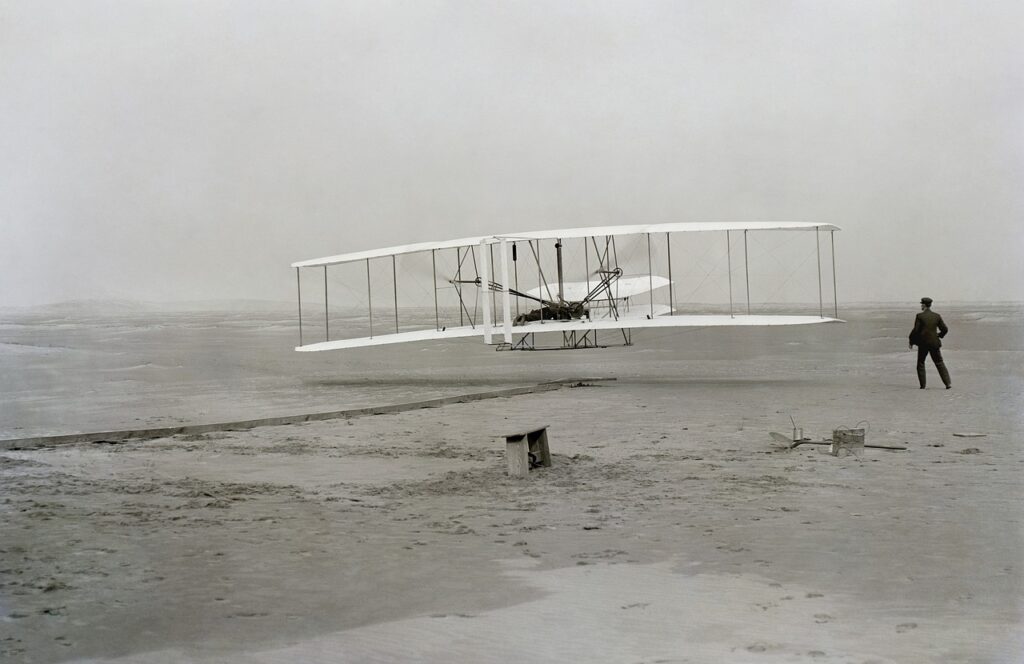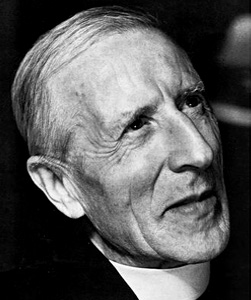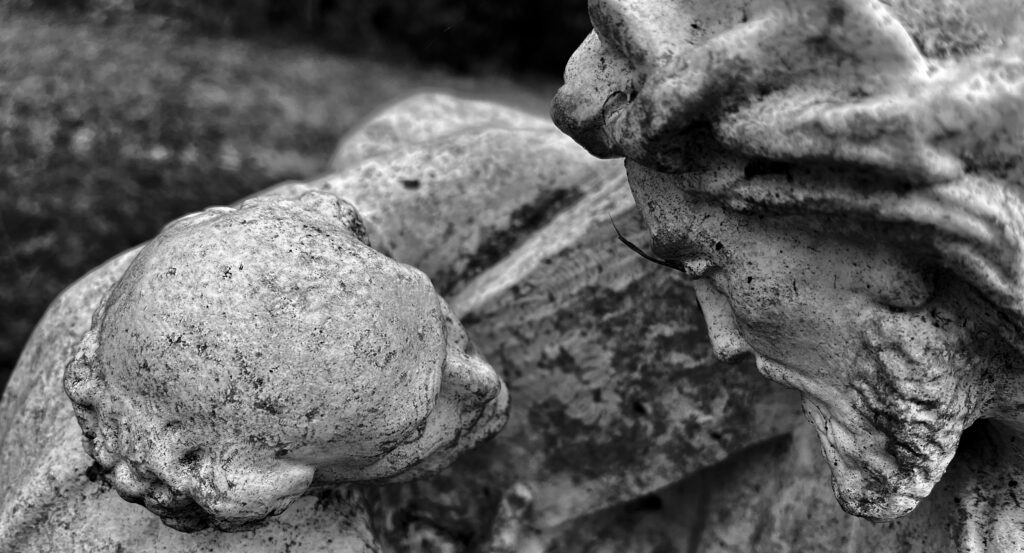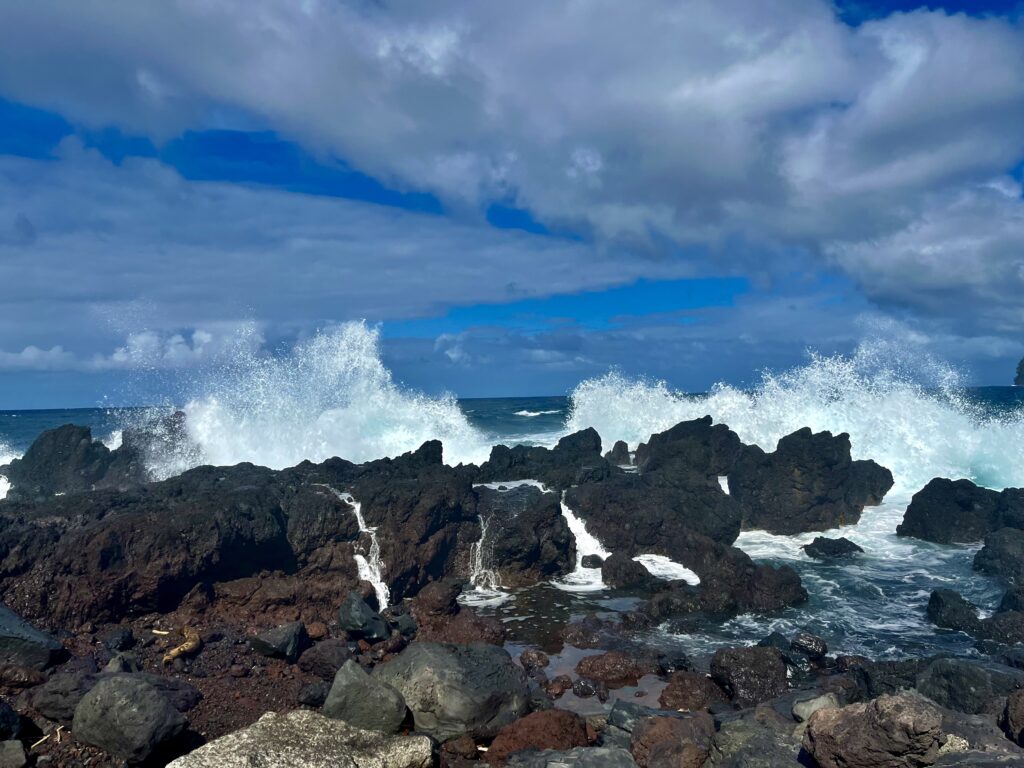
Earlier this summer, I read the book, “Awe: The New Science of Everyday Wonder and How It Can Transform Your Life,” by Dacher Keltner, an expert on human emotion and a professor of psychology at UC-Berkeley, where he serves as the director of the university’s Greater Good Science Center. In the book, Keltner sets out to define what we mean by “awe” and illustrates the experience of awe through dozens of individual stories gathered from around the world.
And, indeed, it’s the global experience of awe that makes this book worth reading. We are all moved, he writes, by experiences that make us draw in a sharp breath and let out the slow sound of “awe” or maybe “wow” or “woah.” In this sense, in what moves us, we all speak the same language, and there is something very important about understanding that.
For the purpose of the book and drawn from his own deep research, Keltner defines awe as: “The feeling of being in the presence of something vast that transcends your current understanding of the world.” It is about “our relation to the vast mysteries of life.” These experiences, he writes, come from the “eight wonders of life,” which can be classified into a “taxonomy of awe.” They are, in order of their commonality around the world:
- Moral Beauty – other people’s courage, kindness, strength and overcoming.
- Collective Effervescence – those moments when, as part of a crowd (whether at church or a sports stadium) we feel we are part of a collective self or tribe – an experience of “we.”
- Nature – not surprisingly, our experience in and of nature can often leave us speechless and with a sense of “something bigger” at work.
- Music – and its ability to transport us to “new dimensions of symbolic meaning.”
- Visual Design – art and architecture and its power to open our minds to new ways of perceiving the world and “locate ourselves” within the cultural systems that surround us.
- Stories of Spirituality and Religion – and the way they transform, transcend, and give us hope for something more.
- Stories of Life and Death – are common around the world and lead to awe at such moments as first and last breaths.
- Moments of Epiphanies – times when we suddenly understand essential truths about life and experience “philosophical insights, scientific discoveries, metaphysical ideas, personal realizations, mathematical equations, and sudden disclosures that transform life in an instant.”
While you likely won’t find Keltner’s book on the “spirituality or religion” section of your local bookstore or online category, I found it to be a great tool for my regular prayer of reflection and examination of my day – my “examen,” as it known in Ignatian spirituality. Keltner’s “eight mysteries” opened my mind to looking for and finding God in an ever-wider array of my life experiences.
Shortly after finishing the book, I began to wonder: What if I paid a little closer attention every day to what astounds me and fills me with awe and wonder? What might I see and experience each day because I am looking for the awe? What if I expanded my time of reflection to look more broadly and consider those eight areas of mystery? What if this was the way I ended each day, with this examen of awe?
At this point in time, I am two months into a project to record one such moment of awe each day. What I am finding thus far is a much wider set of experiences, all of which cause me to either catch my breath, drop me to my knees, or stand in quiet reflection and gratitude.
Here are two examples:
July 13 – Today Sue and I walked a half-mile loop trail that lead to the Akaka Waterfall on the east side of the Big Island of Hawai’i near Hilo. As it finally came into view, this long, 400-foot ribbon of water took my breath away — a sudden and short intake of breath that amounts to “awe.” It plunged over the edge like an Olympic diver, cutting like a knife into the pool beneath it. Perfect in form, a quiet and perfectly straight line into the folding water. And so I prayed: “Cut me like a knife, O Lord, sever me from myself to allow you in. Pierce my heart and allow me to feel the height and depth of your love and compassion for me. Fill me, just as this water continually fills the bowl that rests beneath the falls like open hands.”
August 30 – This morning we went to a funeral for our friend’s 94-year-old father. We didn’t know him or were not even sure we had ever met him. We were there because we believe it’s important to “show up” for people in their times of grief and need. We believe in the beauty and sanctity of the “last rites” of the Catholic Church, that they are fitting ways to celebrate the end of earthly existence and be present as something new begins. I was awed by the flow of music, scripture, ritual, words of remembrance, all encouraging me to consider my own life and death. With the responsorial Psalm, drawn from the oft-used 23rd Psalm, we sang: “Shepherd me, O God, beyond my wants, beyond my fears, from death into life.” And I think that this is what I want most when my time comes – for God to show up and shepherd me home, surrounded by the presence of those I knew and loved, and maybe a few others who show up to be there for my family, even if they have never met me. There’s awe in the way we humans (and the church) care for each other.
So here’s my challenge to you today: Pay attention to what catches your heart, your breath, your sense of being in the world, for God is in that moment.
